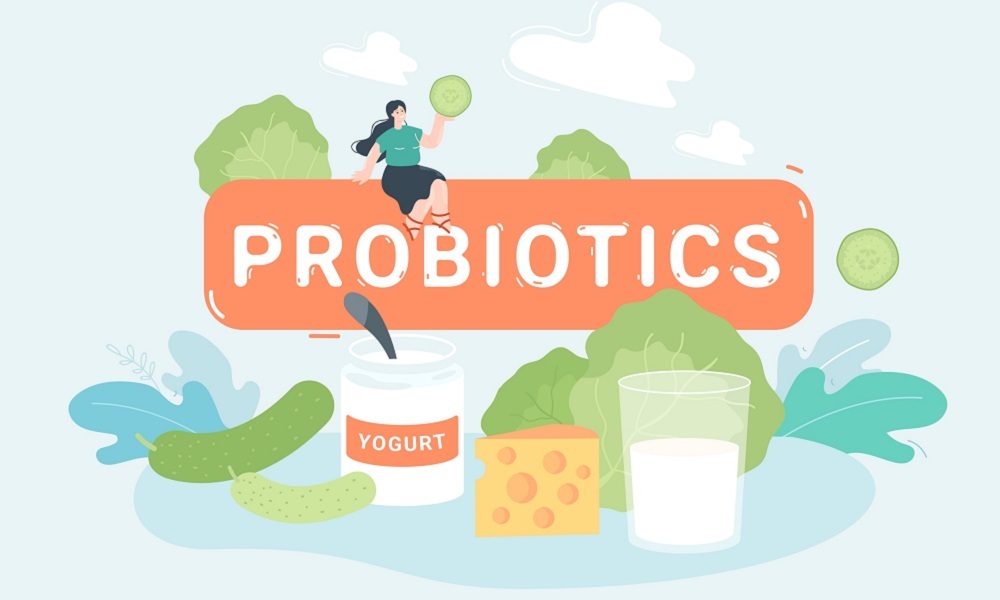What are probiotics and how do they improve our health? In this article, academics from La Trobe University explain the function of probiotics, and their research into the potential preventative impacts of probiotics on poor bone health and osteoporosis.
Poor bone health and the chronic disease it can lead to, osteoporosis and related bone fractures, can greatly reduce our mobility, and therefore have a significant impact on our overall health and wellbeing. It’s a disease post-menopausal women and other older adults are at higher risk of developing and it is not fully reversible.
Professor George Moschonis and PhD Candidate Stephanie Resciniti from La Trobe University are researching whether probiotic supplements can have a positive effect on reducing bone mass loss in post-menopausal women. Their study, ProBone 21, is an extension of a promising study conducted a few years ago with post-menopausal women in Sweden. These results showed a reduced loss in bone mass for women who took a probiotic supplement for 12 months, compared to those who took a placebo (a supplement that resembled the probiotic, but contained no active ingredients whatsoever).
Moschonis and Resciniti hope the results of their study, which will involve monitoring the bone mass in participants taking supplements for 12 months, will help us to understand if probiotics might be an effective early intervention strategy for those most at risk of developing osteoporosis, thereby helping to improve the wellbeing of many in the community.
How can poor bone health affect our wellbeing?
‘[Osteoporosis] is a condition that can significantly reduce quality of life, can affect your mental health and have a very negative effect on wellbeing,’ Moschonis tells Wellbeing by Teacher.
‘With a fracture when we're young we go … “Okay, we just put a cast on it for six weeks and we move on with our lives”, but when you hit those older life stages (particularly post-menopause) a fracture can be the start of very downward spiral. Not just the loss of mobility, I think the most visible and easily imaginable [impact] is the change in life, in general everyday life when you have loss of mobility,’ Resciniti shares.
What are probiotics and what is their function in the body?
‘Probiotics are live bacteria and yeasts that are naturally found in the gut, but we can also find them in selected food products (mainly in fermented products such as yoghurt, kombucha, tempeh and stuff like that) … and some food supplements of course,’ Moschonis explains. ‘So, when we're talking about probiotics we’re usually talking about “good bacteria” … and this “good bacteria” usually occupies positions in the gut which otherwise would be occupied by “bad bacteria” (or pathogens as we call it).
‘Probiotics protect us from these “bad bacteria”/these pathogens, but at the same time, what they do in the gut is they reduce inflammation. So, inflammation is another bad condition for the body because it triggers a number of adverse effects in the body and bone loss and osteoporosis is among these adverse effects.’
Moschonis and Resciniti add that while we can consume probiotics from food products, it can be really challenging to be able to consume the number and combination of probiotics you need to maintain good gut health. We can consume a much higher, and much more sufficient dosage in probiotic supplements, which is why their study is based on supplements rather than a specific diet.
Who is at risk of poor bone health and osteoporosis?
While osteoporosis can affect men too in old age, the ProBone 21 study will focus on post-menopausal women, particularly those no more than eight years’ post-menopause, because this is a demographic at high-risk of developing poor bone health. This is because oestrogen production considerably declines in women during and after menopause, and this hormone is one that helps protect from bone loss.
‘The issue with menopause is when oestrogen drops, the bone stimulating effect that oestrogen has turns off as well, and that's what causes that significant drop off for those early post-menopausal years and that's why it's so much more critical for women to retain their bone health early in those years,’ Resciniti explains.
‘Because we know that it's going to go down – rather than having a big drop off a cliff, we want to make that an ambling walk down a hill just to make sure that, okay, yes it's likely that there might be some bone health issues down the track, but you don't want that break or that first fracture to then be the start of something that you can't recover from.’
If you are interested in participating in this study, you can find out more and check your eligibility at the ProBone 21 website.


